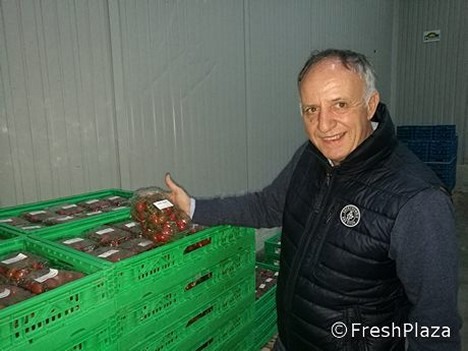The Sicilian horticulture sector is currently in a difficult moment, the problems are piling up and the light at the end of the tunnel seems a long way away. Massimo Pavan, a grower with a long-term career in the carrot and tomato sector, described the situation.
 Massimo Pavan
Massimo Pavan
"We are seeing an abnormal reduction in consumption at the moment. Normally there is always a decrease in November, which does not usually worry us, but this year it is different. Consumers have a wait-and-see attitude, they are worried about the coronavirus, their jobs and their income. In Italy, some regions are more affected by the pandemic than others, and this is causing a sharp drop in demand from the Ho.re.ca. industry, which accounts for a significant segment of the market".
"We also have noticed that Spain is experiencing disastrous times with regard to the cucurbits, particularly cucumbers, and this is also having an impact on our market. By the way, this has nothing to do with Covid. Over the past few weeks, the price of courgettes has dropped from €2.00 to €0.25 per kilo and Italian cucumbers have a price of only €0.10 per kilo, with unsold product. These are excellent crops grown in greenhouses, but the selling price has to be higher than the cost to keep a margin for the growers. The eggplant situation is not any better, fluctuating and sometimes underpriced, like the violetta, that has reached €0.30 per kilo".
"The only crop that has good prices is the tomato, but that is only because they are highly resistant to the ToBRFV virus. There is little supply so the price is high. The date tomato exceeds the threshold of €3.00 per kg. High prices also for the cherry tomatoes, which reached €2.30 per kilo ".
"At the same time, it is not possible to stop the flow of goods from North Africa that lower the quotations on the European markets. We have been observing this phenomenon with concern, nothing has changed, on the contrary, we are witnessing an uncontrolled increase in volumes. The low prices outshine some issues that European growers have to deal with, such as food safety, respect for workers' rights, fair wages, less environmental pollution and the use of plant protection products approved by the European community".
